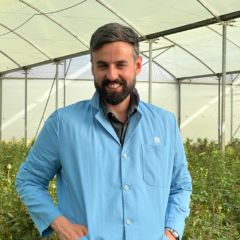FSI HISTORY
The Floriculture Sustainability Initiative was initiated in 2012 by 25 stakeholders in the floriculture sector, the founding members of FSI. They share the goal of finding more sustainable solutions for farmers, for the environment, and for the future of the sector, and set themselves the ambition to have 90% flowers and plants responsibly produced and traded by 2020.
In 2013, FSI was established as an independent international non-profit association under Belgian law (aisbl), supported primarily by its members and through project funding.
From the start, IDH the Sustainable Trade Initiative was the convenor and one of the major donors to enable the start-up process of FSI. Today, FSI is still actively collaborating with IDH taking part in the IDH Fresh & Ingredients program.
In 2021 the FSI2025 programme was approved by the General Assembly. Read about the four pillars of the 2025 Strategy here.
START-UP PHASE
During the two-year start-up phase, FSI focused on putting the tools in place to create transparency and comparability of standards, defining the priorities to encourage more responsible practices, and to activating the network through projects on key topics. The benchmarking process was launched with partners, and nine projects set off for a period of 2 years.
EXPANSION PHASE
FSI members collected the first results of the benchmarking and the projects, and focused efforts on growing supply and demand. This market transformation was supported by increasing the volume of sustainably sourced Flowers & Plants, as well as improving practices on risk areas for the sector.
MAINSTREAMING PHASE
FSI anticipates that 90% of the traded flowers and plants will originate from responsible sources and be recognised as mainstream sustainable commodities by 2020. The flowers and plants supply chain will have integrated sustainable development criteria and FSI members will have implemented responsible sourcing and best practices on the identified key topics.
BROADENING HORIZON PHASE
FSI launched a new strategy paper for 2021-2025, focussing on four pillars: Responsible Sourcing, Living Wage, Environmental Footprint and Responsible Conduct. The integrated approach has broadened the horizons for driving sustainability in the Floriculture sector, including specific themes such as living wage, environmental footprint and integrated reporting.
FSI VALUES
From core values to change
To move towards a mainstream sustainable floriculture sector, it is key to develop a shared vision, reverse the fragmentation of standards and thus inefficiencies, and to create a structure where current and future sustainability issues can be tackled on a sector level.
Prepare for the future by addressing sustainability issues in a pre-competitive way through the development of tools and best practices regarding identified key topics in the floriculture industry.
Involve relevant stakeholders, build coalitions and aim to create change on the ground by taking joint action on the implementation of impact projects, through coordination of the actions and the sharing of results.
Increase the demand for sustainable flowers and lower costs by providing transparency and comparability of the sustainability standards in floriculture. Working on continuous improvement of the level of sustainability in the sector using the ITC Standards Map and the FSI Basket of Standards.
Use institutions that are already established and have led to valuable cooperation with the International Trade Center (ITC), GlobalGAP and the Global Social Compliance Program (GSCP) using and building on generally accepted practices. Align projects and interventions with national organisations, embassies and other relevant institutions to share information and approaches to either build on what is already there or to share experiences and way forward.
FSI BOARD
FSI TEAM


IDH TEAM











